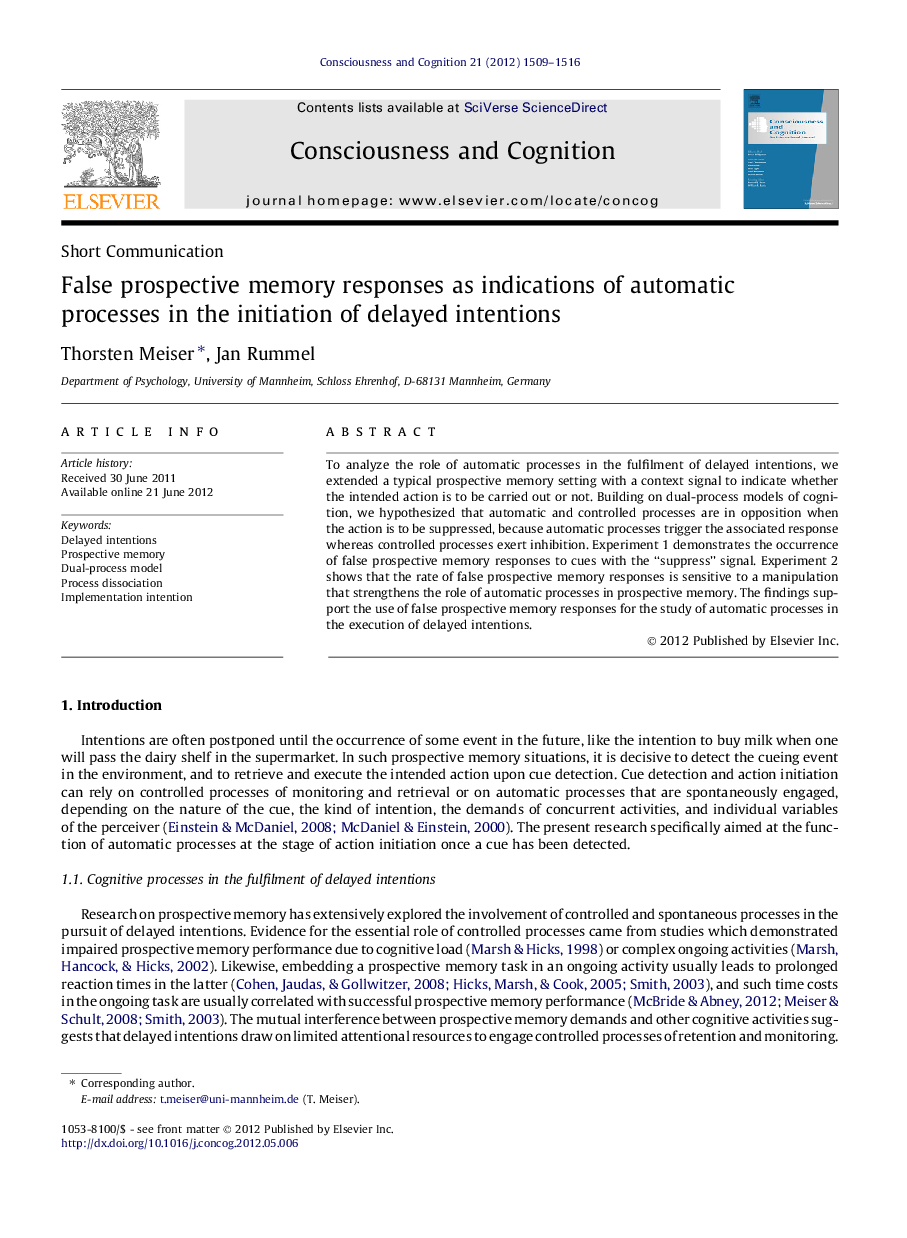| Article ID | Journal | Published Year | Pages | File Type |
|---|---|---|---|---|
| 927638 | Consciousness and Cognition | 2012 | 8 Pages |
To analyze the role of automatic processes in the fulfilment of delayed intentions, we extended a typical prospective memory setting with a context signal to indicate whether the intended action is to be carried out or not. Building on dual-process models of cognition, we hypothesized that automatic and controlled processes are in opposition when the action is to be suppressed, because automatic processes trigger the associated response whereas controlled processes exert inhibition. Experiment 1 demonstrates the occurrence of false prospective memory responses to cues with the “suppress” signal. Experiment 2 shows that the rate of false prospective memory responses is sensitive to a manipulation that strengthens the role of automatic processes in prospective memory. The findings support the use of false prospective memory responses for the study of automatic processes in the execution of delayed intentions.
► Two experiments illustrate a new procedure for analysing automatic processes in prospective memory. ► Experiment 1 shows false prospective memory responses with the new procedure. ► Experiment 2 shows that the rate of false responses is sensitive to a manipulation of automatic processes. ► The findings demonstrate the role of automatic processes in the initiation of delayed intentions.
